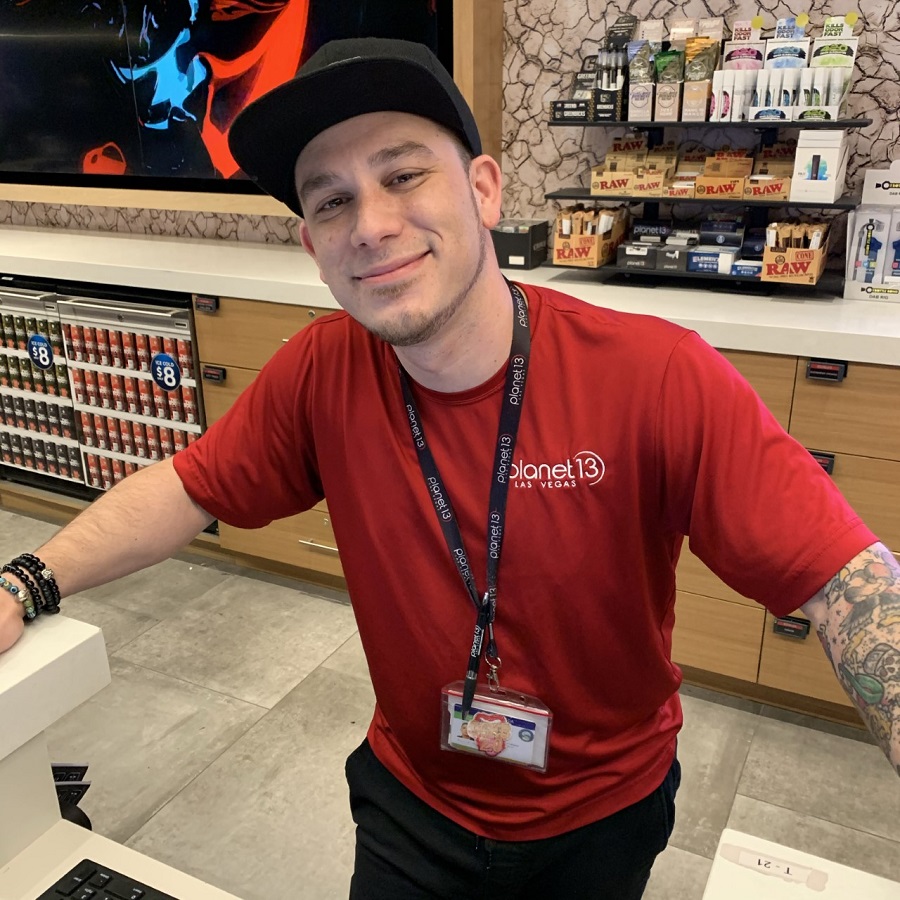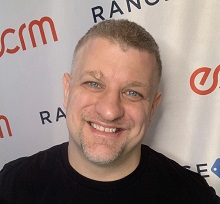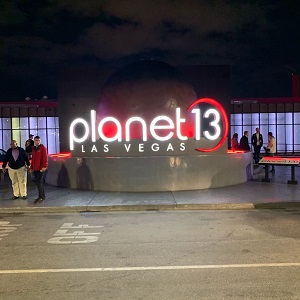Selling CBD Products: What Retailers Can Learn From Dispensaries 4/20/2020

Mass retail sales, by their very nature, are all about large volume and quick turnover. Yet sales of CBD products are typically a far more consultative process. And if one thing was driven home to me during my recent visit to the Planet 13 dispensary in Las Vegas, it’s this: if retailers want to become the go-to place for CBD sales, they will have to find a successful balance between this quick turnover of shoppers and the ability to provide the resources – and patience – needed to educate consumers about CBD products.
As most of you probably already know, CBD products have their roots in the cannabis dispensaries. This is where CBD product innovation began, that’s where many CBD consumers originally went to learn about these products, and that’s where you’ll find “budtenders,” the resident experts on everything cannabis-related, including CBD.
The one thing you won’t typically find at a dispensary, however, are consumers being rushed out the door.
Planet 13 is a case-in-point. Sure, it’s a bit of a tourist trap set up for people to explore, linger, and take tons of photos. But it was my experience once made my way up to the register and spoke with the budtender that hammered home just how much importance is placed on their knowledge and ability to truly consult with customers.
An Inside Look
The Planet 13 dispensary is right off the strip and as soon as you reach the front you can see that the place was designed to be an experience, with interactive lighting and stunning visual effects all around the exterior. Inside it’s also beautiful, set up with lounges, a coffee shop, and plenty of places to hang out.
Once inside, visitors check in at the front desk, where an associate checks your ID and enters your info into their computer, then prints a ticket stub with a QR-code. You scan this at the turnstile to enter, then scan it at one of several kiosks set up at the entrance and enter your mobile phone number. This places you into a digital queue, which is displayed on screens around the perimeter, letting you know how many people are ahead of you. There are no “lines” at the registers, here; you don’t see the budtender until your name is called.
During this wait time, visitors peruse the dozens of glass display cases stationed throughout the store to check out all of the available cannabis products. CBD products range from tinctures to gummies, flowers to beverages, topicals to vapes and everything in between. Both branded and store brand products are available. Some are CBD-only, while others are a blend of THC and CBD – which together provide an “entourage effect,” meaning one enhances the effects of the other.
After perusing the aisles for approximately 10 minutes, which flew by as there were so many interesting things to look at, I was texted with my assigned register location and headed over to the budtender’s station.
This was where the difference between a dispensary and mass retail store clearly stood out. Over the next 10 minutes, the budtender answered every question I threw at him regarding CBD: What was the main reason his consumers sought out CBD products (pain management was the most popular use occasion), what types of products were the biggest sellers (topicals), what turpenes are (aromatic metabolites found in the oils of plants), as well as what he thought the next big thing would be in the cannabinoid space (he answered, CDN, or cannabinol, known for its mild sedative properties). I then purchased a Planet 13 T-shirt and a CBD beverage and was on my way.

If I had more questions, I’m sure he would have been happy to answer them. Because of the nature of the queue management system, there is no one waiting in line behind me, and so the budtender was free to deliver a truly unrushed consultative sales experience. Think more Apple Genius Bar and less grocery store.
And that's one challenge the mass retail is going to have to overcome: CBD consumers, particularly those who have previously shopped at a dispensary, are used to this kind of consultative sales approach, where the associate is incredibly knowledgeable, and takes his or her time to ensure that every question the shopper has is answered, and that they walk out with the exact product and the perfect dosage that will best suit their needs. And if they are new to CBD, they need an even more patient approach.
However, the typical fast-moving consumer goods retailer isn’t set up for this type of sale, and while associates have a good knowledge of the products on the shelves, developing the type of knowledge that a typical budtender has takes a lot of time and resources that many mass retailers simply don’t have or aren’t willing to dedicate to one product category.
So, if you are planning to carry a wide range of CBD products, you’ll have to do the following:
- Identify who your in-house CBD experts will be and train them extensively, not just on the details of the products you’ll be selling, but on HOW to educate consumers about them. This often means having the manufacturer of each product spending time education them on each aspect of each product, the dosage, and how they should be used.
- Include a legal consultation on what they can and cannot say to consumers about CBD products. This should go without saying, but you want to make sure they know what they can and cannot say.
- Most importantly, ensure that they have enough flexibility to spend adequate time with CBD customers, which may mean that they may occasionally have to drop other tasks in order to focus on educating a new CBD consumer.
One option, if you are looking to ramp up quickly, is to hire a budtender from a dispensary. This may be worth the expense if you are planning to go big with CBD. Or, if you can’t dedicate the resources to this kind of sale, consider carrying a smaller and more simplified selection of CBD products that will not require as extensive training, nor as much time spent consulting customers.
Either way, expect to dedicate a little more time to consulting with CBD shoppers than you typically would with shoppers from other categories, particularly if they are new to CBD. With these consumers, if you can provide a little guidance – and maybe some hand-holding – you’ll soon become that go-to place for them. And if you haven’t done so already, try to visit a dispensary next time you are in a legal state like Las Vegas or Colorado, and see how you can apply some of their best practices to your own.
Editor's note: This column appears in the April issue of Mass Market Retailers magazine

